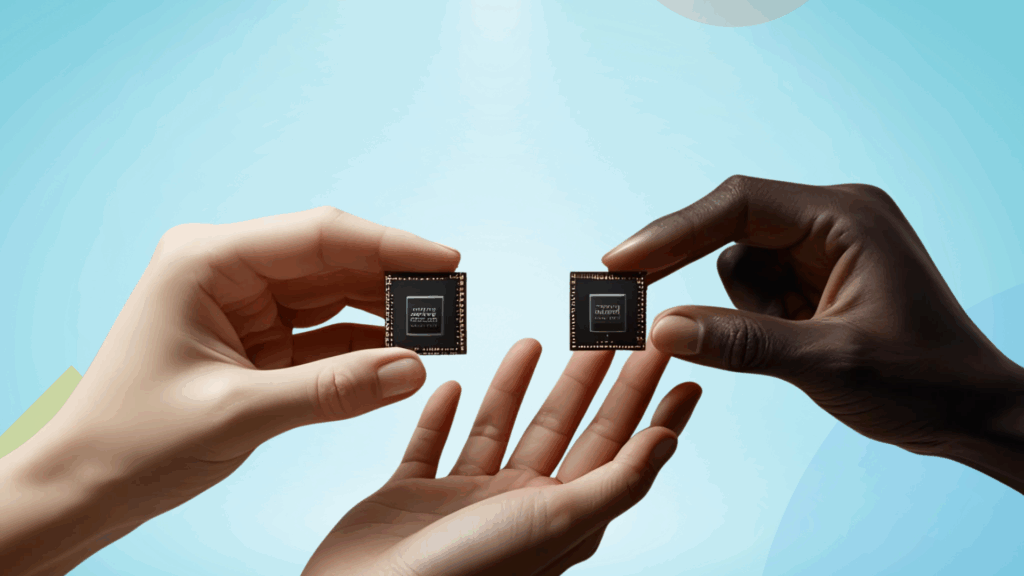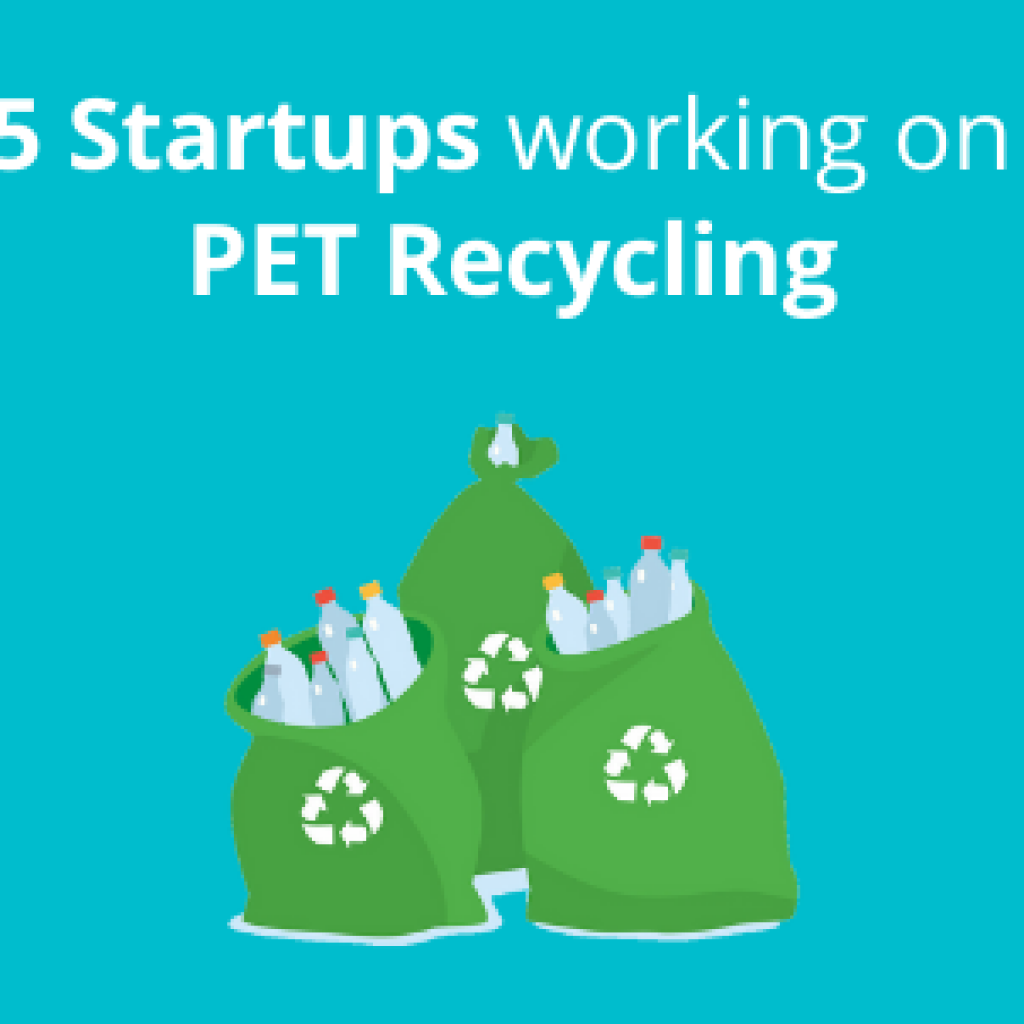The Quantum Computing field has come a long way since quantum computers were conceived by Richard Feynman. Although the field is still in its infancy, with its long-term promise, it remains one of the exciting, potential, and lucrative investment markets of the future.
The ability of quantum computing to solve large-scale combinatorics (i.e., in how many ways can a set of objects be combined) problems faster and cheaper has encouraged billions of dollars of investment in recent years. The field is hustling and bustling over the past five years, i.e., from 2015 to 2020, with companies, governments, and universities making strides in progress.
In our last article covering top quantum computing companies, we found that Google made claims of “quantum supremacy” by performing calculations that may take over 10,000 years (widely disputed by rivals like IBM) in a mere 3 minutes in 2019. With the US launching the Quantum Initiative in 2018, and China spending $400 million on a national quantum lab, the rat race to outperform has gotten intense.
Adding fuel to the fiery field, IBM in late 2020 released a statement about Quantum Condor, an 1121-qubit quantum computer in the making, deployable via the cloud, and programmable from any part of the world, might be up and running by the end of 2023. The company claims the system can control the behavior of atoms to run applications, and generate world-changing materials to transform industries.
Recently, Honeywell merged with the UK’s Cambridge Quantum Computing to marry their hardware expertise with Cambridge’s software and algorithm bank.
According to Honeywell, quantum computing is set to become a trillion-dollar industry in the coming decade and they are all set to take charge.
Many countries have even cited quantum computing as an area of national interest. Overall patent filings have risen significantly in the fields of Quantum Communication, Cryptology, algorithms, and Computation. Interestingly, the filing trend of these years shows that Asian organizations, especially Chinese and Japanese companies, are slowly dominating their traditional North American and European counterparts (like D-wave, Microsoft, and IBM).
Even major Chinese universities have seen a recent surge in patent filings pertaining to the hardware wing of quantum computing. Their willingness to use national, academic, and commercial resources has given China an edge in its quest to lead the revolution in quantum computing.
This is the third of our 4 part series on uncovering research trends in Quantum computing.
Our full report covers:
- Research trends of quantum computing
- Leading companies and prominent startups
- Top countries where research is being done
- The impact that quantum computing is having on other industries
Get your hands on a full report using the form below and uncover everything about the Quantum computing market and research.
Owing to the surge of development in the industry, we decided to explore startups that could potentially be the flag bearers of the quantum revolution.
Here are the top 9 quantum computing startups:
1. 1Qbit
| Website | https://1qbit.com/ |
| Headquarter | British Columbia, Canada |
| Total Funding Amount | $35.6 Million |
| Investors | Fujitsu, CME Ventures |
| What innovative tech are they working on? | Quantum computing processors and software |
1QBit is known for identifying the intractable industry problems and building the necessary software to harness the best classical and quantum hardware technologies to solve them. For the same, 1QBit harnesses the properties of the quantum universe to assist advanced computing hardware. The startup considers it a revolution unlike any previous evolution in computing design.
In the near future, processors will harness the properties of quantum physics by design. The startup’s research, services, and technology are focused on leveraging the optimal use of computing power at all points along this trajectory.
How many Patents does 1QBit have?
1QBit has filed 10 patent applications, of which only 1 is granted. The patents are filed in Canada and the US.
Top Collaborations of 1QBit
- On November 24th, 2020, the Government of Quebec announced a $749,044 grant to 1QBit and AWN Nanotech through PRIMA Québec for a collaboration that aims to encourage innovation in chemistry and nanotechnology using quantum computing. The program, which has a total value of $1,498,088, would foster innovation in the chemical, energy, and environmental sectors. (Source)
- On September 7, 2018, 1QBit announced a partnership with Rigetti Computing, an advanced quantum computing firm. As a Developer Partner, 1QBit would have priority access to Rigetti’s Quantum Cloud Services platform and specialized Quantum Machine Images, allowing them to build, manage, and distribute their apps to the larger QCS community. 1QBit has been looking forward to working with Rigetti Computing as they continue to develop the first generation of viable quantum applications. (Source)
- Microsoft Quantum announced new relationships with 1QBit and other top startups in quantum software and algorithm development at the 2018 Quantum for Business Conference. As a result of this collaboration, 1QBit and Microsoft experts would be able to cooperate on the most demanding issues in quantum computing. 1QBit would also get access to Microsoft’s Quantum Development Kit as well as the tools that come with being a member of the exclusive Microsoft for Startups program. (Source)
- On April 5, 2018, IBM took another significant step in expanding access to quantum computing. IBM announced the first companies to join the IBM Quantum Network, a global community devoted to improving quantum computing and investigating practical applications in industry and research. Membership in the network would allow these firms to perform tests and algorithms on IBM quantum computers via cloud-based access. (Source)
- Fujitsu Limited and 1QBit collaborated on May 15, 2017, to bring quantum-inspired technologies to the field of artificial intelligence (AI), concentrating on combinatorial optimization and machine learning. The businesses would collaborate in both the Japanese and worldwide markets to create applications that employ AI developed for use with quantum computers to address industrial challenges. (Source)
- The Dow Chemical Company and 1QB Information Technologies (1QBit) signed a partnership agreement in June 2017 to create quantum computing solutions for the chemicals and materials science technology sectors. The two firms would expedite the implementation of quantum computing across a variety of chemical-related applications. Dow’s discovery process would be aided by cooperation that would increase basic knowledge of novel chemicals and materials. The integration of next-generation computational methods with experimental design would result in a new level of product and process development acceleration. (Source)
- On June 9, 2014, D-Wave Systems Inc., the world’s first commercial quantum computing business, announced two new collaborations as part of its application ecosystem. DNA-SEQ and 1QBit are creating software applications that take advantage of D-unique Wave’s quantum computing capabilities. DNA-SEQ and 1QBit have been collaborating with D-Wave to develop the machines. (Source)
2. IonQ
| Website | https://ionq.com/ |
| Headquarter | Maryland, United States |
| Total Funding Amount | $432 Million |
| Investors | Samsung Catalyst Fund, Cambium Capital Partners, GV, New Enterprise Associates |
| What innovative tech are they working on? | Making an Ion-based Quantum computer by turning an atom into an ion using an ionization process |
IonQ takes a different approach in building quantum computing by using a naturally occurring quantum system: individual atoms, to build quantum computing. IonQ’s qubits are ionized ytterbium atoms, a silvery rare-earth metal. Each ytterbium atom is perfectly identical to every other ytterbium atom in the universe.
The only difference between a neutral ytterbium atom (Yb) and an ytterbium ion (Yb+) is one electron, which IonQ removes with lasers as a part of the trapping process. This process, called ionization, leaves the atom with a positive electrical charge and only one valence electron.
Moreover, once prepared in a particular stable quantum state, they can remain in that state for very long periods of time — they’re so consistent that they’re used in one of the most accurate atomic clocks ever built.
Merger and Acquisition of IonQ
IonQ, a quantum computing startup, announced a $2 billion merger with a Special Purpose Acquisition Company (SPAC) on March 8, 2021. The corporation has agreed to merge with dMY Technology Group, Inc. III to form the first publicly traded quantum computing company. The merged firm is anticipated to be worth approximately $2 billion, and IonQ shares would be traded on the NYSE under the symbol ‘IONQ. (Source)
How many Patents does IonQ have?
IonQ has filed 129 patent applications, of which 19 applications have been granted. The startup has filed patents in the US, Europe, China, Australia, and South Korea.
IonQ Collaborations that made headlines
- IonQ Inc. announced a strategic agreement with SoftBank Investment Advisers, manager of the SoftBank Vision Funds 1 and 2, on June 3, 2021, to deploy quantum-first solutions in sectors, countries, and portfolios where SoftBank is currently at the forefront. The collaboration broadens worldwide access to IonQ’s premier quantum computers, and the SoftBank Vision Fund 2 joins IonQ’s world-leading investor base as it prepares for its public debut. (Source)
- IonQ, the trapped ion quantum computing startup that recently revealed its intention to go public via a SPAC, said on April 12, 2021, that it is merging its quantum computing platform with IBM’s open-source Qiskit software development kit. This implies that Qiskit users may now port their apps to IonQ’s platform without making significant changes to their code. (Source)
- According to a news release, IonQ announced a three-year collaboration with South Korea’s Quantum Information Research Support Center, or Q Center, in January 2021. The Q Center is a self-contained entity of Sungkyunkwan University (SKKU) dedicated to the development of a robust research environment in the field of quantum information science. The collaboration would make IonQ’s trapped-ion quantum computers accessible for education and research throughout South Korea. (Source)
- At the Annual Ignite Conference on November 4, 2019, IonQ, the pioneer in universal quantum computing, announced the launch of Azure Quantum in collaboration with Microsoft. Azure Quantum is a full-stack, open cloud ecosystem that would commercialize IonQ’s quantum computers based on trapped ions over the cloud, allowing customers to use IonQ’s unique approach to quantum computing. (Source)
3. ISARA Corporation
| Website | https://www.isara.com/ |
| Headquarter | Ontario, Canada |
| Total Funding Amount | $26.9 Million |
| Investors | Quantum Valley Investments, Shasta Ventures |
| What innovative tech are they working on? | Quantum security solutions |
Co-founded in 2015 by former BlackBerry security executives, ISARA is a security solutions company specializing in creating crypto-agile and quantum-safe security solutions. It is on the path to making quantum-safe security for enterprises and governments by delivering practical, standardized solutions.
The startup has launched several first-of-its-kind solutions, such as a quantum-safe cryptography library, integration tools for developers, and agile technologies. With products like ISARA Radiate™ Quantum-safe Toolkit and ISARA Catalyst™ Agile Methodologies, it helps Security Solution Providers and OEMs to create quantum-safe products without sacrificing interoperability.
How many Patents does ISARA have?
ISARA Corp has filed 46 patent applications of which 30 applications are granted. The startup has filed patents in the US, Europe, and 1 application in Japan.
ISARA Collaborations that are noteworthy
- ISARA Corp. and Crypto4A Technologies Inc. announced their collaborative collaboration agreement on June 15, 2021, with the goal of providing companies with next-generation security for their digital transitions. The two firms have collaborated to create and deploy market-ready cryptographic-based solutions for digital transformations by combining Crypto4A’s hardware-anchored Qx Trust Architecture (QxTA) with ISARA’s software experience in implementing crypto-agility and quantum-safe security. (Source)
- Toppan Printing (Toppan) and ISARA Corporation (ISARA) collaborated on the creation of smart cards with post-quantum public-key cryptography on April 6, 2021. Toppan and ISARA want to equip smart cards with public-key cryptosystems that are secure against quantum computer attacks in order to provide secure access authentication verification. Further evaluation of the viability of smart cards equipped with post-quantum public-key cryptography on H-LINCOS, a testbed of quantum secure cloud technology, is planned in partnership with Japan’s National Institute of Information and Communications Technology (NICT). (Source)
- Cybersec Innovation Partners Limited (CIP) and ISARA Corporation announced their cooperation on April 16, 2020, allowing CIP to offer innovative solutions and services to enable a seamless transfer of digital trust infrastructures to post-quantum security. CIP will be able to provide ISARA’s industry-leading quantum-safe, crypto-agile, and hybrid certificate products as a result of the strategic relationship. This revolutionary technique allows systems to be quantum-safe without disrupting operations while retaining the availability and integrity of existing security mechanisms. (Source)
- Thales announced its partnership with ID Quantique (IDQ) and ISARA on the 5th of August 2019 to collaborate on a quantum-safe, crypto-agile solution designed to guard against the security threat of quantum computing. Thales provides organizations with the crypto-agility to easily implement quantum-safe crypto and combat the threats of quantum computing by incorporating ID Quantique’s quantum random number generation technology and ISARA’s quantum-safe algorithms in its SafeNet Luna Hardware Security Modules (HSM) and SafeNet High-Speed Encryptors. (Source)
- On September 20, 2018, DigiCert, Inc., Gemalto, a global leader in digital security, and ISARA Corp. announced a collaboration to provide enhanced quantum-safe digital certificates and secure key management for connected devices known as the Internet of Things (IoT). (Source)
- Cisco Systems and ISARA Corp. announced the world’s first partnership to test digital certificates that function in both conventional and quantum-safe algorithm modes on April 12, 2018. Cisco and ISARA have been making accessible a public server that leverages these certificates to authenticate itself to Transport-Layer Security (TLS) clients to demonstrate how backward-compatible dual-algorithm (hybrid) works. Backward-compatible hybrid certificates, which may also be given to clients through Enrollment over Secure Transport (EST), were intended to assist smooth the transition from traditional to quantum computing over the next several years while preserving high mission-critical encryption requirements. (Source)
- ISARA Corp. and Certified Security Solutions (CSS), the market leader in PKI-based digital identification software and services, announced on April 17, 2018, the introduction of the world’s first quantum-safe, full-stack public key infrastructure (PKI) solution. With the new PKI solution, the automobile sector can verify that its over-the-air (OTA) software updates are safe against attacks from today’s conventional systems as well as future quantum computers. (Source)
- ISARA hired Hawkins Group as its cybersecurity advisor in 2018, as the former collaborated with the Federal Government to secure sensitive data from quantum computing-related cyber threats. Hawkins Group will provide guidance as cybersecurity firm ISARA partners with the Defense Department to safeguard the security of sensitive documents and high-value assets in advance of the widespread usage of quantum computers to analyze data. (Source)
- BlackBerry announced a new cooperation with ISARA in February 2017. ISARA would be able to safeguard encryption and signing keys against quantum computer assaults by utilizing advanced technologies such as McEliece variants for public-key cryptography; Leighton-Micali Signature for digital signing, and the innovative Lattice-based Unique Key Exchange (LUKE). BlackBerry has actively collaborated with ISARA to incorporate quantum-resistant encryption into its products, guaranteeing that BlackBerry consumers are safeguarded long before large-scale quantum computers become a reality. (Source)
- ISARA and Utimaco Inc., a global provider of cybersecurity solutions, announced on October 12, 2017, that they successfully ran quantum-safe hash, lattice, and multivariate-based digital signature algorithms for Hardware Security Module (HSM) in preliminary laboratory testing. (Source)
4. Multiverse Computing
| Website | http://multiversecomputing.com/ |
| Headquarter | Pais Vasco, Spain |
| Total Funding Amount | €24 Million |
| Investors | European Innovation Council, JME Ventures |
| What innovative tech are they working on? | Quantum computing for financial industry |
Finance is one of the industries that are adopting quantum computing at an early stage and this promising opportunity is what led to the creation of Multiverse Computing. The startups provide software for companies from the financial industry wanting to gain an edge with quantum computing.
Their expertise can be recognized by a list of partners to whom they provide their quantum solutions. The list contains big names such as Amazon, IBM, Microsoft, NTT along with quantum computing startups such as IonQ, AQT, etc.
To Whom Multiverse Computing did Collaborations?
- Crédit Agricole CIB and European tech giants Pasqal and Multiverse Computing established collaboration on June 28, 2021, to create and execute innovative techniques for capital markets and risk management which would surpass state-of-the-art algorithms on conventional and quantum computers. Pasqal, a French firm, is creating a quantum computer based on neutral atom arrays, a cutting-edge technology that is currently being tested to construct industrial quantum computers. Multiverse Computing, based in Spain, specializes in quantum algorithms that can be executed on both quantum and classical computers. (Source)
- On February 8, 2021, Multiverse and AQT announced a global strategic collaboration, combining Multiverse’s experience in delivering software to help the future revolution in computer-aided financial issues with AQT’s expertise in ion-trap quantum computing. Multiverse Computing develops hyper-efficient software for financial firms seeking to achieve a significant competitive edge through the use of quantum computing technologies. (Source)
- BBVA has been following several lines of study in Quantum computing with the goal of investigating its applicability in the realm of finance. On August 26, 2020, the joint research team analyzed and benchmarked a variety of quantum and classical technologies to enhance the process of dynamically optimizing investment portfolios with market data in partnership with the Spanish company Multiverse. The findings, which were published in a scientific publication, enabled the researchers to uncover previously unknown ways for performing these computations, which would allow them to maximize the possible returns on investments. (Source)
5. Riverlane
| Website | https://riverlane.com/ |
| Headquarter | Cambridgeshire, United Kingdom |
| Total Funding Amount | $24.1 Million |
| Investors | Amadeus Capital Partners, Molten Ventures, Cambridge Innovation Capital |
| What innovative tech are they working on? | Building Operating System for Quantum Computers |
Riverland considers itself as the world’s first quantum engineering company. Besides hardware, Riverlane builds ground-breaking software to unleash the power of quantum computers. The startup software transforms quantum computers from experimental technology into commercial products.
Riverlane goes deep into the stack so that its hardware partners can focus on the physics and build better full-stack solutions. The startup works with the chemical, pharmaceutical, and materials industries to improve algorithms and specify early killer applications of quantum computers.
To Whom Riverlane did Collaborations?
- Rigetti Computing teamed up with Riverlane and Astex Pharmaceuticals on July 13, 2021, to advance quantum computing in drug discovery. Riverlane’s algorithm expertise and new developments would be used for high-speed, low-latency processing on quantum computers built with Rigetti’s commercially available quantum devices. (Source)
- Riverlane announced cooperation with Strangeworks as part of a synergistic quantum environment on February 17, 2021. Strangeworks Quantum Syndicate would also feature 1Qbit, Algorithmiq, Amazon Braket, Atom Computing, Bleximo, Blueqat, D-Wave, Entropica Labs, Hitachi, Honeywell, Horizon Quantum Computing, IBM, IonQ, Microsoft, PlanQK, Qureca, Rigetti, Stack Overflow, Unitary Fund, and Xanadu. (Source)
- On May 26, 2020, Riverlane announced a collaboration with Astex, a world leader in fragment-based drug development, to focus on the new perspectives of quantum chemistry. The two firms would work together to combine their expertise in quantum computing software and quantum chemistry applications in order to accelerate medication development. They would study the characteristics of covalent medicines using extremely high levels of quantum theory and computing. (Source)
6. Q-CTRL
| Website | https://q-ctrl.com/ |
| Headquarter | New South Wales, Australia |
| Total Funding Amount | $43.4 Million |
| Investors | Airbus Ventures, Australian Government, Square Peg Capital |
| Innovative TechWhat innovative tech are they working on? | Solve Quantum Computing Challenges with Control |
Q-CTRL delivers transformational real-world outcomes from quantum technology. It enables researchers, developers, and engineers to build stable, reliable quantum computers and quantum sensors, without suffering from the noise and hardware error that has held back the field for so long.
Q-CTRL is building a new quantum technology industry by overcoming the fundamental challenge in the field – hardware error and instability.
Q-CTRL’s quantum control infrastructure software for R&D professionals and quantum computing end users provides a unique capability accelerating the pathway to the first useful quantum computers. This foundational technology underpins Q-CTRL’s development of novel “Software-defined” quantum sensors for defense, intelligence, navigation, and earth observation.
How many Patents does Q-CTRL have?
Q-CTRL has filed 13 patent applications of which 4 applications are granted. The startup has filed in Australia, China, Europe, the US, and South Korea.
To Whom Q-CTRL did Collaborations?
- In April 2021, Transport for New South Wales, an Australian transportation agency, partnered with the startup Q-CTRL to investigate how quantum computing could someday allow commuters and tourists to enjoy the fastest possible travel through multiple transfers across transportation networks, a difficult computing task that could require near-instantaneous recalculations based on changing ground conditions. (Source)
- On September 9, 2020, Q-CTRL and Quantum Machines, the creators of the first full hardware and software solution for the control and operation of quantum computers, announced a global commercial agreement to incorporate Q- CTRL’s firmware into Quantum Machines’ quantum hardware platform. Quantum Machines would therefore incorporate Q-CTRL’s ‘quantum firmware’ into its Quantum Orchestration hardware and software platform (QOP) to provide an additional layer of control optimization and functionality that leverage the best of what the QOP has to offer for teams to improve the performance of quantum computers. (Source)
- Q-CTRL announced cooperation with Advanced Navigation on July 14, 2020, to develop a next-generation quantum-enhanced Precision Navigation and Timing (PNT) system for both the civilian and defense sectors. As a result, when GPS is absent, quantum-enabled PNT could provide highly precise navigation in commercial and military applications. The two companies would collaborate to develop quantum-enabled sensors. (Source)
- On October 10, 2019, Q-CTRL announced a global collaboration to power superconducting ‘quantum accelerators’ from Bleximo, a Berkeley-based full-stack quantum computing firm. According to the terms of the partnership, Q-CTRL would supply software tools to the Bleximo team and would be the preferred source of ‘quantum firmware’ for quantum computing devices that Bleximo puts to market. (Source)
- On April 5, 2018, IBM announced the first companies to join the IBM Quantum Network, a global community devoted to improving quantum computing and investigating practical applications in industry and research. Membership in the network would allow these firms to perform tests and algorithms on IBM quantum computers via cloud-based access. Additionally, these startup members would have the chance to interact with IBM researchers and technical SMEs on possible applications, as well as other IBM Quantum Network businesses.
- The IBM Quantum Network, which debuted in December 2017, offers partner companies varying levels of cloud-based access to quantum knowledge and resources, as well as access to IBM Quantum systems. Q-CTRL is one such Start-Up that has collaborated with IBM in Quantum Computing. (Source)
7. AegiQ
| Website | https://www.aegiq.com/ |
| Headquarter | Sheffield, United Kingdom |
| Total Funding Amount | $4.3 Million |
| Investors | High-Tech Grunderfonds, Innovate UK |
| What innovative tech are they working on? | Quantum Security Platform |
Aegiq develops new-generation networking solutions by utilizing quantum security and data links. The startup uses its proprietary hybrid photonics platform to solve key bottlenecks for communications both in space and on the ground. AegiQ’s III-V semiconductor-based quantum photonics is accepted as a far superior method in terms of reliability and security and leverages existing industrial processing techniques.
To Whom AegiQ did collaborations?
On September 21, 2020, AegiQ collaborated with Fraunhofer in a £10 million project to create quicker, thumbnail-sized quantum physics technologies. They wanted to create miniature and integrated devices that would inspire more organizations and industries to use quantum technology, therefore expanding applicability, markets, and economic prospects. (Source)
8. QNu Labs
| Website | https://qnulabs.com/ |
| Headquarter | Massachusetts, United States |
| Total Funding Amount | $2.07 Million |
| What innovative tech are they working on? | Quantum-safe Cybersecurity Solution |
QNu Labs is a leader in quantum-safe cryptography products and solutions, offering unconditional and forward security of data on the internet and cloud.
After having done several firsts in India and globally, the startup felt the need to develop next-generation security solutions that would leverage the power of quantum technologies to address cyber security problems of the classical computing world.
Its team consists of passionate people with diverse skills in Quantum Physics, Quantum Security, Cybersecurity, Optoelectronics, Laser technology, and high-precision electronics. QNu Labs achieved the momentous milestone of becoming India’s first and only Quantum Cryptography company and put India on the prestigious quantum map of the world.
How many Patents does QNu Labs have?
QNu Labs has filed 1 patent application in the US which is now discontinued.
To Whom QNu Labs did Collaborations?
On May 20, 2021, QNu Labs announced a collaboration with Amrita Vishwa Vidyapeetham to conduct more research, education, and development of quantum-based security and computing technologies in India. The Memorandum of Understanding would also include quantum security research and development activities, and quantum security technology electives. (Source)
9. Zapata Computing
| Website | http://www.zapatacomputing.com/ |
| Headquarter | Massachusetts, United States |
| Total Funding Amount | $67.4 Million |
| Investors | Comcast Ventures, Pitango Venture Capital, Prelude Ventures, Engine, Pillar VC |
| What innovative tech are they working on? | Build Quantum Software for Enterprise |
Zapata Computing is a quantum software company that offers computing solutions for industrial and commercial use. It provides hardware-agnostic solutions for simulation, optimization, and machine-learning applications in chemistry, finance, logistics, pharmaceuticals, engineering, and materials.
The startup helps industry-leading companies understand—and capitalize on—the capabilities of quantum devices in the next 2-5 years and beyond.
How many Patents does Zapata Computing have?
Zapata Computing has filed 84 patent applications of which only 3 applications are granted. The startup has filed patents in the US, Canada, Europe, Australia, Taiwan, China, and Israel.
To Whom Zapata Computing did Collaborations?
- Zapata Computing Inc., the leading enterprise software company for NISQ-based quantum applications, announced a new partnership with the Middle Eastern-based King Abdullah University of Science and Technology (KAUST) to be a licensed user of Zapata’s Orquestra, the modular, workflow-based platform for applied quantum computing, on March 23, 2021. KAUST has been investigating several lines of study to investigate how quantum technologies could offer a competitive edge over traditional computing tools in a range of Computational Fluid Dynamics (CFD) use cases for aviation and vehicle aerodynamic design. (Source)
- On May 27, 2021, BBVA and the United States-based company, Zapata Computing announced the results of a research study involving the use of quantum algorithms applied to the Monte Carlo technique, which enables forecasting the evolution of various variables under random conditions. Despite its promise, using this technology to achieve a more effective manner of computing derivative product pricing and performing valuation changes would still need additional advancements in available hardware. (Source)
- On August 11, 2020, Honeywell collaborated with Zapata Computing to help convert business problems into quantum computing and hybrid computing solutions[110]. Zapata Computing also announced an investment from Honeywell Ventures, indicating the corporation’s continued support for the startup. (Source)
- On November 18, 2019, Atos, a global leader in digital transformation, and Zapata Computing Inc. announced a global partnership to deliver an end-to-end quantum computing solution that addresses vertical markets by combining Zapata’s software platform Orquestra with the Atos Quantum Learning Machine (QLM). The collaborative solution would enable businesses to tackle the world’s most complex computational issues in the oil and gas, aviation, banking, and pharmaceutical industries using a novel method that would be ready to deploy and scale to real-world difficulties. (Source)
- On July 19, 2018, Zapata announced a collaboration with Google on an open-source quantum computing effort. The collaboration’s major goal was to create a new machine-learning method that would aid in the development of more efficient quantum computing circuits. (Source)
- On April 5, 2018, IBM announced the names of some companies to join the IBM Quantum Network, a global community devoted to improving quantum computing and investigating practical applications in industry and research.
- The IBM Quantum Network, which debuted in December 2017, offers partner companies varying levels of cloud-based access to quantum knowledge and resources, as well as access to IBM Quantum systems. Zapata computing is one such Start-Up that has collaborated with IBM in Quantum Computing. (Source)
Conclusion
Quantum technology is likely to be as transformational in the 21st century as harnessing electricity was in the 19th. It promises to deliver revolutionary capabilities in computing, communications, and defense.
Once quantum computers are powerful and stable enough, their unique computational power will solve world-changing problems that are beyond the capabilities of even the largest supercomputers.
The research is ongoing and we could see promising solutions by these startups in the near future. To know more about the technology or the startups working on it, please contact us here.
Author: Avantika Sharma










